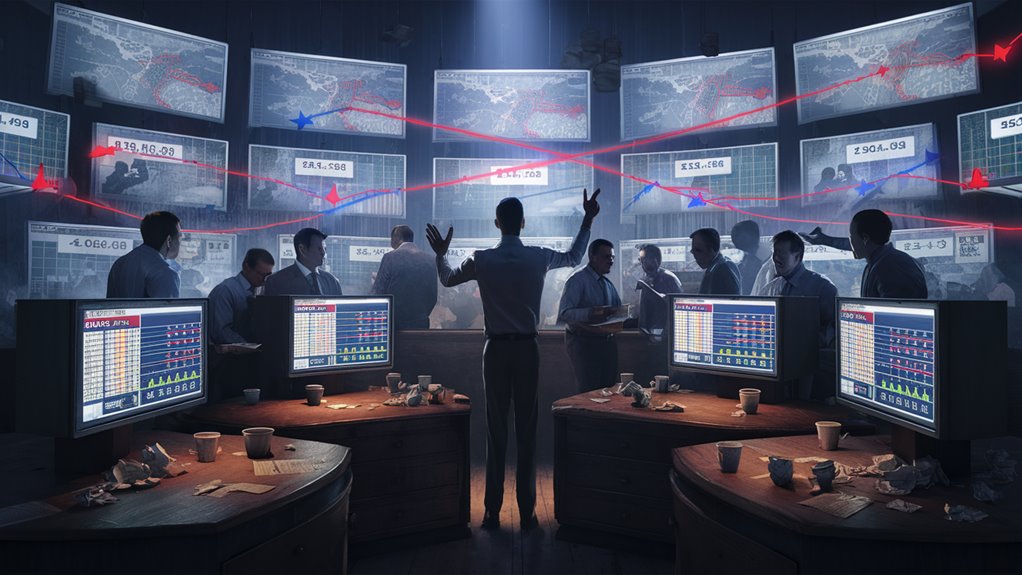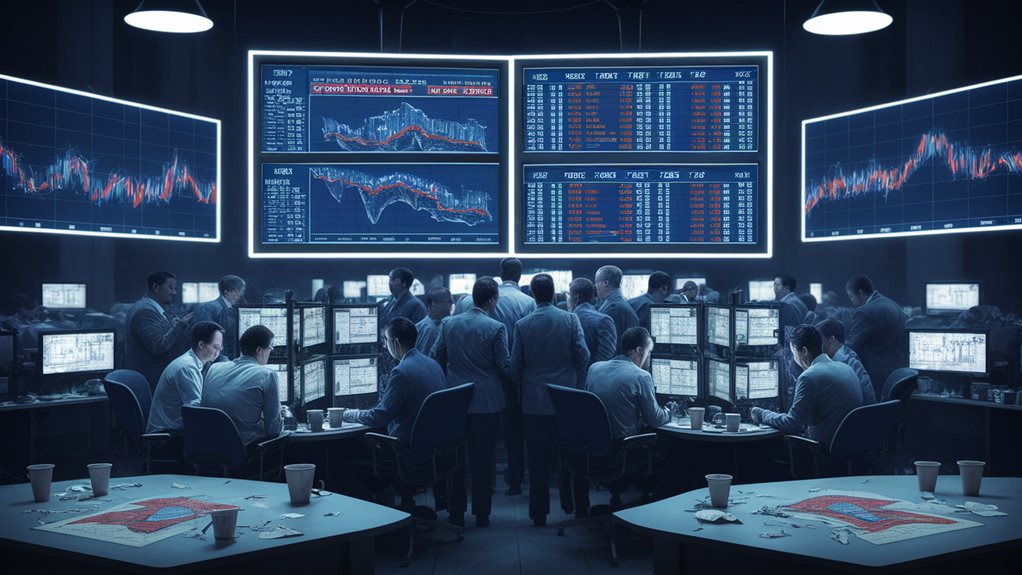
How Political Betting Markets Work

Basics of Betting on Elections
Political betting markets are similar to financial markets where people place bets on election outcomes using platforms like PredictIt in the US and Betfair in the UK. The odds fluctuate as participants buy and sell.
How Good Are They?
Studies indicate that election betting markets have an 80% success rate in predicting election outcomes, outperforming most polls by incorporating various data sources such as:
- Polls
- Economic information
- Social media statements
- Campaign finance reports
- Historical voting data
Do They Change Votes?
Can They Shift Elections?
Betting odds can influence election dynamics by:
- Affecting 2-3% of voter intentions
- Increasing campaign fundraising by 15-20%
- Altering media coverage
- Influencing campaign strategies
What Are the Risks?
Challenges in these markets include:
- Attempts to manipulate the system
- Disinformation on social media
- Insufficient liquidity in smaller races
- Regulatory constraints
- Geographical access restrictions
How These Platforms Work
Leading prediction market platforms employ mechanisms to ensure smooth operation such as:
- Responsive pricing adjustments
- Anti-fraud measures
- Capital flow monitoring
- User verification
- Regulatory compliance
Understanding Election Betting
Betting Basics in Politics
Political betting platforms function like stock markets for elections, with prices fluctuating based on expected outcomes. Participants buy “shares” priced between $0 and $1 reflecting probable results.
Main Betting Places and How They Work
Key platforms like PredictIt and Betfair facilitate betting on diverse election results, with pricing reflecting the perceived likelihood of events (e.g., 60% probability).
Getting it All Together
Political betting markets synthesize data from sources such as:
- Real-time polling
- Current news
- Traditional Bookmakers
- Expert analysis
- Campaign activities
- Demographic preferences
This comprehensive approach often results in more accurate predictions than mere poll data, exemplifying the wisdom of crowds when financial engagement is involved.
Market Smarts
These markets continually adapt to new data, with astute traders capitalizing on pricing errors for profit.
History of Betting Right on Elections
Early Success
Election betting markets have a robust history of accurate predictions, correctly forecasting 12 out of 15 elections from 1900 to 1956, notably outperforming traditional polling methods.
Getting Better
Contemporary betting markets maintain their predictive advantage, with data from 1988 to 2020 indicating the favorite won 7 out of 9 times when favored two weeks before Election Day.
When They Miss
Despite their accuracy, there have been notable misjudgments such as the Brexit referendum and the 2016 U.S. presidential election, illustrating imperfections in any prediction system.
Prediction Markets vs Polls
Polls vs Markets: Detailing Predictions

Forecasting Votes
Prediction markets and polls both aim to forecast election results. While polls solicit direct public opinions, prediction markets use financial stakes to validate guesses.
Why Markets Do Better
Effective market speculation relies on:
- Prompt information updates
- Financial incentives
- Self-corrective mechanisms
- Attention to new trends
Strengths of Polls
Polls offer valuable insights into:
- Demographic opinions
- Topical viewpoints
- Regional specificities
Best of Both
Combining both methods yields the most accurate predictions by integrating:
- Market sentiment
- Poll data
- Voter turnout models
- Economic conditions
- Campaign strategies
Deeper Market Thoughts
Market participants consider multiple factors, including:
- Historical voting patterns
- Economic trends
- 온카스터디 안전업체 보기
- Campaign movements
- Media narratives
- Voter turnout projections
This comprehensive analysis often exceeds the predictive power of polls alone.
Market Cheating and Dangers
Risks in Betting on Elections
When People Cheat in Betting Markets
Prediction markets face challenges such as manipulation attempts by large players or groups aiming to skew odds through significant bets, misleadingly indicating stronger chances of a particular outcome.
Big Risks in Betting on Elections
How Info is Used
Exclusive, non-public data and insider information can compromise market fairness and predictive accuracy.
How Social Media Changes Odds
Emergent online trends can rapidly alter betting dynamics, potentially disconnecting market prices from actual probabilities.
Betting Right Before the Vote
Large-scale bets placed shortly before elections can disrupt market corrections, sustaining inaccurate pricing.
Laws and Loopholes
Lax regulations can create vulnerabilities within markets. While financial markets are heavily regulated, election betting often lacks stringent oversight, opening pathways for exploitation.
Legal Rules Worldwide
Where Betting on Elections is Okay
Rules Here and There
Election betting markets encounter varied regulatory environments globally. The UK leads with clear regulations, contrasting with the US, where such betting is broadly prohibited, except for limited uses like PredictIt for academic purposes.
Rules in Asia
Countries like Australia and Ireland permit regulated betting, whereas Singapore and Japan enforce prohibitions. New Zealand allows betting under strict oversight.
How Europe Does It
The EU showcases diverse approaches, with global outrage countries like Germany and France largely opposing such activities, while Malta serves as a hub for online betting.
Online Betting and Rules
The proliferation of online betting challenges traditional boundaries, prompting jurisdictions to reevaluate regulations as cross-border markets necessitate innovative management strategies. This digital evolution encourages global regulatory reconsideration.
Keeping Markets Fair
Effective regulations strive to balance openness with safety, employing measures such as:
- Rigorous licensing criteria
- User protection mechanisms
- Anti-money laundering protocols
- Responsible gambling standards
- Transaction monitoring
These efforts aim to maintain market integrity while facilitating legitimate wagering.
How Betting Changes Votes
Do Bets Move Voters?
What Signals Do to Votes
Election betting markets not only predict outcomes but also influence voter behavior through significant impacts:
Betting odds convey potent signals to undecided voters, often swaying them toward perceived frontrunners.
Significant shifts in betting trends can affect 2-3% of the electorate across demographics.
Money and Campaigns
Political betting markets also affect campaign finances.
Statistics reveal that favorable odds can increase fundraising by 15-20%, Casino Trends providing a substantial boost to campaign efforts.
This market-derived advantage significantly enhances campaign capabilities.
News and What We Think
Market perceptions also shape media narratives, influencing the information we receive and continuously reinforcing their own impact, affecting further decisions and voting behavior.
This interconnectedness elevates betting platforms from mere prediction tools to influential players that actively shape modern electoral processes and public opinion.


